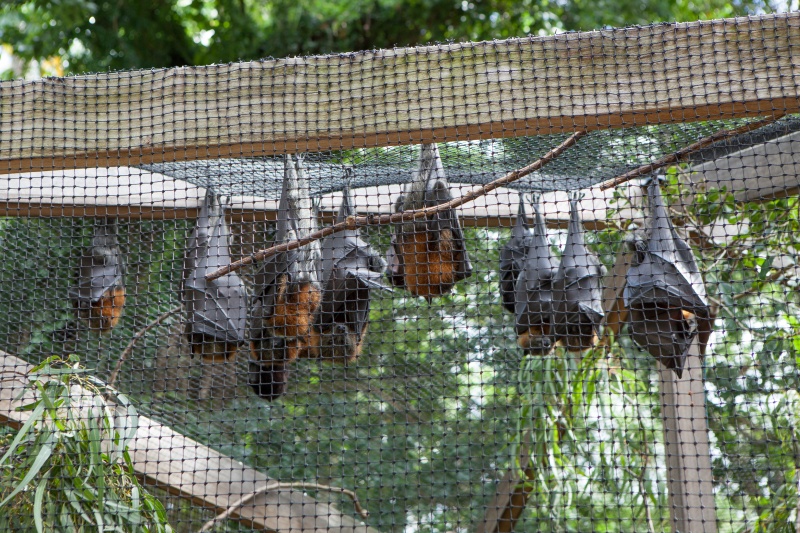
A research team from the Institute for Basic Science has developed an organoid platform for the airway, lungs, kidneys and small intestines of five types of bats that live in Northeast Asia including Korea and Europe. (iClickArt) *Unauthorized reproduction and redistribution of this photo is prohibited under copyright law.)
By Koh Hyunjeong
A domestic team of scientists has developed the world's largest platform for bat-like organoid research to analyze the characteristics of virus infections and immune responses.
The goal is to find a preemptive response to another pandemic through early discovery of treatment should an infectious disease arise.
The Ministry of Science and ICT on May 15 said the team led by Choi Young Ki, director of the Institute for Basic Science (IBS), and Koo Bon-Kyoung, head of the Center for Genome Engineering under the IBS, produced organoids derived from bats living in Korea.
The researchers used the platform to discover the infection patterns and proliferation traits of bat-borne viruses, and made a screening platform to swiftly find effective treatments for virus-infected bat organoids.
About 75% of infectious diseases originate from animals. Bats are especially known as natural hosts for high-risk zoonotic viruses such as COVID-19 (SARS-CoV-2), MERS-CoV and influenza A, but biological organoids for bat-borne viruses have been extremely limited.
The IBS team thus developed a bio model of the airway, lungs, kidneys and small intestines of five types of bats that live in Northeast Asia including Korea and Europe.
The team plans to build similar platforms using other animals such as rats and pigs.
The research was a collaboration between the IBS and its center, and its results were published on May 16 in the international journal Science.
"The newly developed organoid platform is highly significant as a biobank resource that provides standardized bat models for researchers of infectious disease worldwide," Choi said. "We expect the platform to develop into a core system to contribute to the detection of new or mutant bat-borne viruses to prepare a response to a global pandemic."
hjkoh@korea.kr
